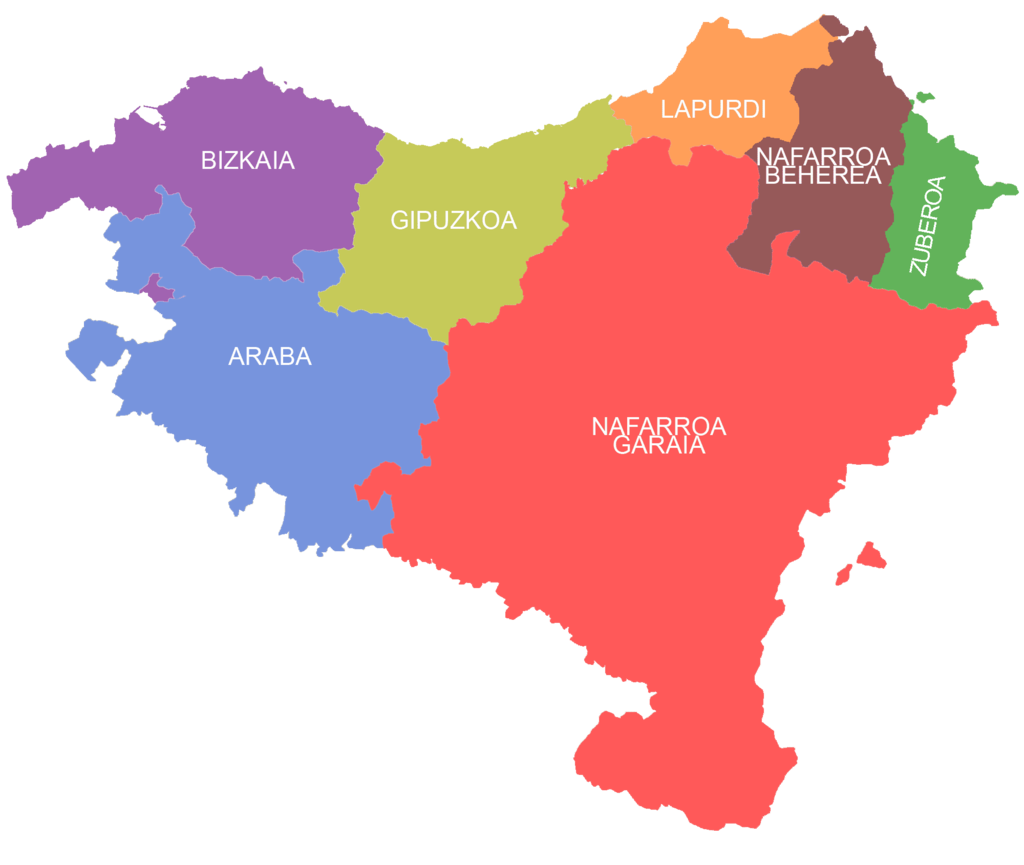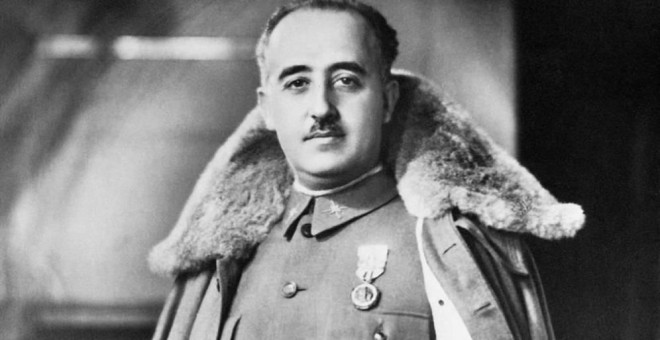Basque: the mysterious language
The most ancient speaking relic of Western Europe
During the ancient times, when the newborn Indo-European languages were developing in the most renowned civilizations, there was a language that, hidden in the majestic Pyrenees, had been evolving alone for hundreds of years. Can you imagine a way of communication more unique than the one that has been completely isolated from the world? Do you think that its survival could be possible these days?
 Ikurrina: the flag
Ikurrina: the flag
This is the case of the Basque language, or Euskara, a language isolate which forms its own language family. The origins of the Basque language are rather mystical, but linguists are prone to say that it is the last remaining pre-Indo-European language in Western Europe. What is absolutely clear is that the Basque people, which were mainly descendants of farmers, were isolated for thousands of years from the outside world. This might have been caused by the sorrounding mountainous and foresty terrain; in fact, before Romans arrived, its unattractiveness had concealed its inner treasure better than any chest.
Geography and dialects
 The Basque Country in Europe
The Basque Country in Europe
Nowadays, the Basque Country is shared between two countries: France and Spain. As you can see in the picture above, it takes up part of Northern Spain and Southern France. It is divided into seven provinces: Biscay (Bizkaia), Guipúzcoa (Gipuzkoa), Álaba (Araba) and Navarre (Nafarroa) in Spain; Laburdi (Lapurdi), Low Navarre (Nafarroa Behera) and Soule (Zuberoa) in France
 The provinces
The provinces
Despite the historical/cultural territory, the Basque Country only takes up politically Bizkaia, Gipuzkoa and Araba. Although Basque is an official language in Spain, in France it is not considered official. There are huge differences in the dialects between the provinces, so an official and unified dialect called Batua was invented in 1968 by the Euskaltzaindia The usage of the language varies too. For example, near the most industrialised cities, like Bilbao and Gazteiz, Basque is not as common as in rural areas.

Historical problems
The first contact Basque people had with the outside world was made
possible thanks to the Roman Empire. Since then, it has had to manage
its survival: the rule of foreign power, influence from other
languages, religion imposingness and not even globalisation had enough
power to diminish people talking Euskara.
However, when Francisco Franco won the Spanish Civil War and became
dictator of Spain the use of Basque was strictly banned, as Franco
wanted to immerse all the country into Castilian culture. Speaking in
Basque was forbidden in public and education centres, and it was
removed from transport, publishing houses and the media. Those strict
rules were slightly loosened in the 60s, and that is why the Euskara
Batua came in during the late 60s. Nevertheless, the population that
could speak the language decreased, and even today that percentage is
still low: from the 3 million people that live in the Basque Country
only around 750.000 can speak its language.  Francisco Franco
Francisco Franco
Since Spain became a parliamentary monarchy and the co-official
languages (Galician, Catalunian and Basque) were allowed to be used
again, the Basque government has been trying new plans and ideas to
increase the use of the language and help it survive in the globalized
and digital world we live today.
This is a list of the solutions that have been already implemented:
- Giving importance to the culture in festivities, such as the day of Euskara on the 3th of December.
- Making B2 or higher level certificates almost a necessity on your curriculum vitae (CV), especially if you want to find job in the administration or related to education.
- Anyone has the right to express himself / herself and to be understood in any public institution.
- It is a compulsory subject from kindergarden until upper secondary education.
- Normally it is the lingua franca in the rest of the subjects in school, and almost all the modules in the UPV (University of the Basque Country) are offered both in Spanish and in Basque.
- Normalizing its use in new technologies and scientific research. For example, Zientzia Azoka (Scientific conquest for students) and Zientzia Astea (a week-long event in which scientists share their knowledge through workshops and conferences) events were created to reach that goal.
See how it sounds and watch Basque people talk about their culture
Oh no! The "ikurrina" has not been designed as an emoji yet 😱
Do you want to immerse into one of the most isolated and magical cultures in the world? Then sign up for your first online class!
Thanks for reading my article!
Eskerrak eman nahiko nizkieke IES Astrabudua DBHI-ko Historia, Euskara, Ingelesa eta Teknologiako departamenduei. Haien jakimena jaso ez banu, ez nintzatekeen kapaz izango proiektu hau aurrera eramateko.Coded by Ainara Alonso Pérez 🤓

